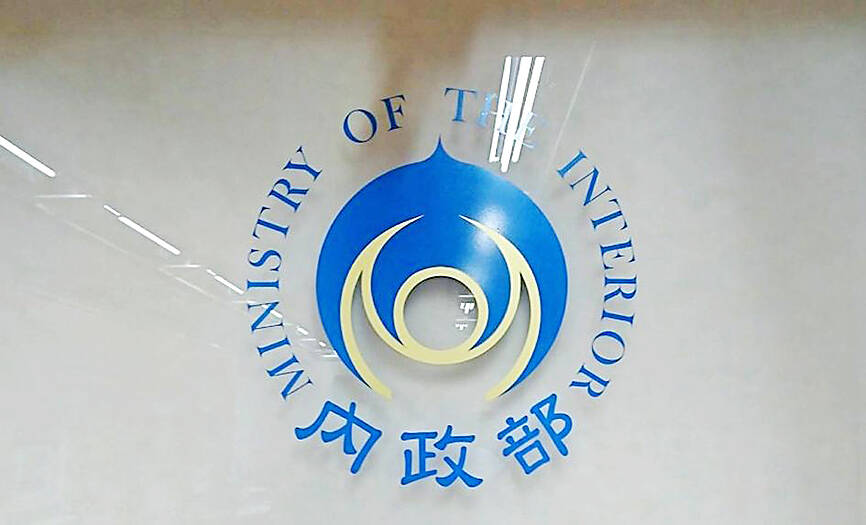Taiwan maintained its top ranking among 17 Asian economies for social sector charitable giving in this year’s Doing Good Index, with events planned in Taipei tomorrow to showcase the results and honor the best-performing civic groups, the Ministry of the Interior said.
Taiwan and Singapore maintained their ranking of “doing well” in the index, which has been published by the Hong Kong-based Centre for Asian Philanthropy and Society (CAPS) every two years since 2018, the ministry said in a statement on Saturday.
It would hold an awards ceremony tomorrow to honor civic groups for their public charity work and the best-performing professional associations this year, including the Taiwan People’s Food Bank Association and the Taiwan Bar Association, it said.

Photo: Huang Hsin-po, Taipei Times
At a forum co-organized by the ministry to address topics involving charity work in Taiwan, Angel An-chi Chiang, the center’s director of research and advisory in Greater China, would present key findings drawn from a survey of 2,183 organizations and interviews with 140 experts used to compile a report for the index.
The awards ceremony and the forum would take place at the National Chengchi University conference center, the ministry said.
CAPS said the ranking is meant to show the readiness of social sectors to thrive in the economies of East, Southeast and South Asia, including Hong Kong.
Taiwan has a “relatively mature” social sector, thanks to its well-established regulatory framework and policies that encourage civic groups to drive private investment toward addressing pressing issues in society, it said in a report released in June.
Favorable tax and fiscal policies are highlighted as supporting Singapore’s top ranking, while Hong Kong and China are both “doing better,” the report said.
Cambodia, India and six other economies are “doing OK,” with Bangladesh listed as the only economy “not doing enough.”
There is growing interest in public affairs in local society, the ministry said, citing the 24,829 registered nationwide civic groups as of Sept. 30.
Taiwan has one nonprofit organization to population for every 376 people, while Singapore has one for every 2,369 people, China has one for every 1,596 people and Hong Kong has one for every 748 people, the report said.
The number of days to register a nonprofit organization, fiscal incentives for philanthropic giving and whether the social sector is perceived as trustworthy are some of the factors used to rank economies, it said.

Chinese Nationalist Party (KMT) Chairman Eric Chu (朱立倫), spokeswoman Yang Chih-yu (楊智伃) and Legislator Hsieh Lung-chieh (謝龍介) would be summoned by police for questioning for leading an illegal assembly on Thursday evening last week, Minister of the Interior Liu Shyh-fang (劉世芳) said today. The three KMT officials led an assembly outside the Taipei City Prosecutors’ Office, a restricted area where public assembly is not allowed, protesting the questioning of several KMT staff and searches of KMT headquarters and offices in a recall petition forgery case. Chu, Yang and Hsieh are all suspected of contravening the Assembly and Parade Act (集會遊行法) by holding

PRAISE: Japanese visitor Takashi Kubota said the Taiwanese temple architecture images showcased in the AI Art Gallery were the most impressive displays he saw Taiwan does not have an official pavilion at the World Expo in Osaka, Japan, because of its diplomatic predicament, but the government-backed Tech World pavilion is drawing interest with its unique recreations of works by Taiwanese artists. The pavilion features an artificial intelligence (AI)-based art gallery showcasing works of famous Taiwanese artists from the Japanese colonial period using innovative technologies. Among its main simulated displays are Eastern gouache paintings by Chen Chin (陳進), Lin Yu-shan (林玉山) and Kuo Hsueh-hu (郭雪湖), who were the three young Taiwanese painters selected for the East Asian Painting exhibition in 1927. Gouache is a water-based

Taiwan would welcome the return of Honduras as a diplomatic ally if its next president decides to make such a move, Minister of Foreign Affairs Lin Chia-lung (林佳龍) said yesterday. “Of course, we would welcome Honduras if they want to restore diplomatic ties with Taiwan after their elections,” Lin said at a meeting of the legislature’s Foreign Affairs and National Defense Committee, when asked to comment on statements made by two of the three Honduran presidential candidates during the presidential campaign in the Central American country. Taiwan is paying close attention to the region as a whole in the wake of a

OFF-TARGET: More than 30,000 participants were expected to take part in the Games next month, but only 6,550 foreign and 19,400 Taiwanese athletes have registered Taipei city councilors yesterday blasted the organizers of next month’s World Masters Games over sudden timetable and venue changes, which they said have caused thousands of participants to back out of the international sporting event, among other organizational issues. They also cited visa delays and political interference by China as reasons many foreign athletes are requesting refunds for the event, to be held from May 17 to 30. Jointly organized by the Taipei and New Taipei City governments, the games have been rocked by numerous controversies since preparations began in 2020. Taipei City Councilor Lin Yen-feng (林延鳳) said yesterday that new measures by